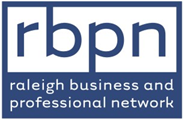Writing Your Personal Statement: A Comprehensive Guide
Embarking on the path of higher education can be an exhilarating journey. A critical aspect of this journey is crafting a compelling personal statement. Your personal statement is your opportunity to talk about your ambitions, skills, and experiences. It is a chance to tell your story and stand out from the crowd. Whether you're applying for an undergraduate course or a postgraduate degree, a strong personal statement can make a significant difference. This guide provides you with all the advice you need to start and finish your personal statement, ensuring that it's more than just a piece of university application. So, let's discover the art of writing an impressive personal statement together.
How to Write Your Undergraduate Personal Statement
Crafting an undergraduate personal statement is about highlighting your passion for the subject you want to enrol in, expressing why you've chosen that particular course, and demonstrating what makes you a suitable candidate. Begin by discussing your interest in the course. Relate it to any relevant skills https://www.soegjobs.com/how-write-personal-statement-that-rocks/, experiences or studies you've undertaken. It's important to be authentic and personal, as universities look for candidates who are genuinely interested and committed. Also, remember to talk about your future plans, showing how the course aligns with them.
Choosing a Course
When applying to a university, you should have a clear understanding of the course you want to enrol in. It's essential to do your research and understand the course content, structure, and career opportunities it can offer. Your love for the subject should reflect in your personal statement, showing how eager you are to delve deeper into your chosen field.
How to Start a Personal Statement
Starting a personal statement can be challenging. However, you can overcome this by focusing on why you want to study your chosen course at the undergraduate level. Discuss your aspirations, what inspired you to pursue this course, and how it will help you in your future career. Use this opportunity to show your enthusiasm and make a positive impression right from the start.
Writing Your Postgraduate Personal Statement
When it comes to a postgraduate personal statement, the stakes are higher, and so are the expectations. Here, you need to talk about your academic achievements, research interests, and how the postgraduate course can help you achieve your career objectives. Remember to highlight any relevant work experience or research projects that you've undertaken in your undergraduate studies.
How to End Your Personal Statement
Concluding your personal statement on a strong note is as important as starting it. Summarize your key points and reaffirm your interest in the course and university. Don't forget to mention your long-term career goals and how the course will assist you in achieving them. Keep it positive, forward-looking, and confident.
Differences Between an Undergraduate and Postgraduate Personal Statement
While both undergraduate and postgraduate personal statements aim to highlight your suitability for the course, there are some differences. An undergraduate personal statement mostly focuses on demonstrating your passion for the subject and your potential, whereas a postgraduate personal statement should emphasize your academic achievements, research capabilities, and readiness for advanced study.
Personal Statement Builder
Writing a personal statement can feel overwhelming. To make this task easier, break it down into sections. Start with your introduction, then discuss your interest in the course, followed by your skills and experiences. Next, talk about your future career plans, and conclude with a powerful ending. This step-by-step approach can help structure your personal statement and ensure all key points are covered.
Personal Statement Advice for Other Applicants
For mature students, career changers, or those seeking apprenticeships, it's vital to explain your motivation for a change and how your life experiences have prepared you for this course. Be honest, be personal, and show the university that despite taking a non-traditional path, you have what it takes to succeed.
Personal Statement Dos and Don'ts
DO show your passion for the course and provide concrete examples to demonstrate your skills and experiences. DO be authentic and show your personality. DON'T lie or exaggerate about your achievements. DON'T copy from others; your personal statement should be unique and reflect who you are. Lastly, DO remember to proofread and check for any grammatical errors.
Writing a Personal Statement Beyond a University Application
Remember, your personal statement doesn't just stop at your university application. It's a document that can be adapted and used throughout your educational journey and even into your professional life. So, put in the time and effort to craft a personal statement that truly reflects your abilities, aspirations, and personality.
FAQs
What should I include in my personal statement?
Your personal statement should include your reasons for wanting to study the course, relevant skills and experiences, and how the course fits into your future plans.
How long should my personal statement be?
Usually, a personal statement should not exceed 4000 characters or 47 lines. However, it's always advisable to check the specific requirements of the universities you're applying to.
Can I use the same personal statement for different courses?
If you're applying for similar courses at different universities, you can use the same personal statement. However, if the courses are different, you should tailor your personal statement to match each course.
Final Thoughts
Writing a personal statement is an essential step in your university application. It's your chance to showcase your passion, potential, and suitability for the course. By following this guide, you should be well-equipped to craft a personal statement that stands out from the crowd and helps pave the way for your academic success. So, go ahead, start writing your personal statement, and step confidently into the next exciting phase of your educational journey.
Useful Resources: https://www.campingcomfortably.com/camping-essay-how-to-write-a-stellar-report/
